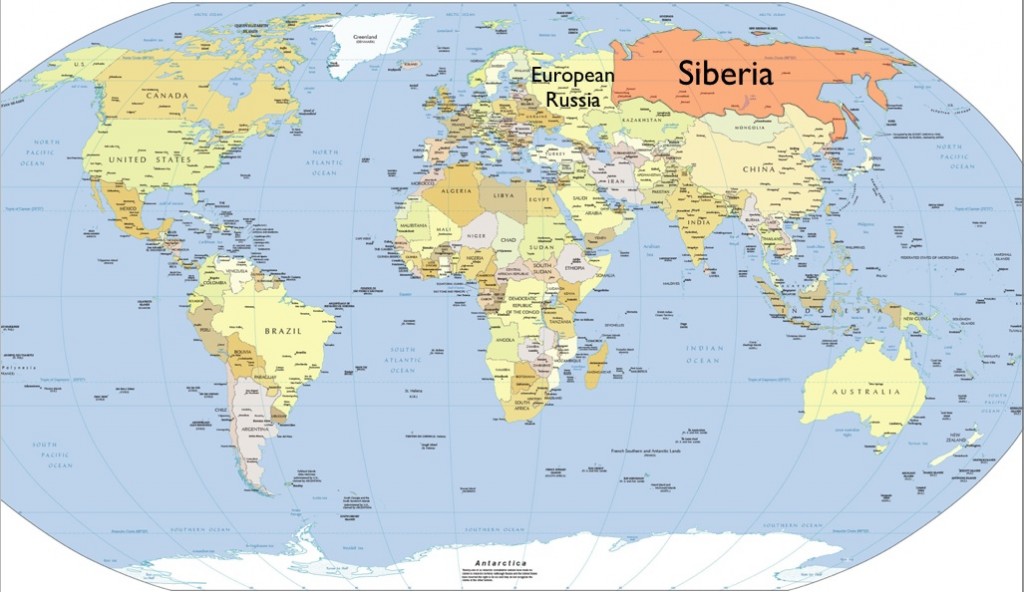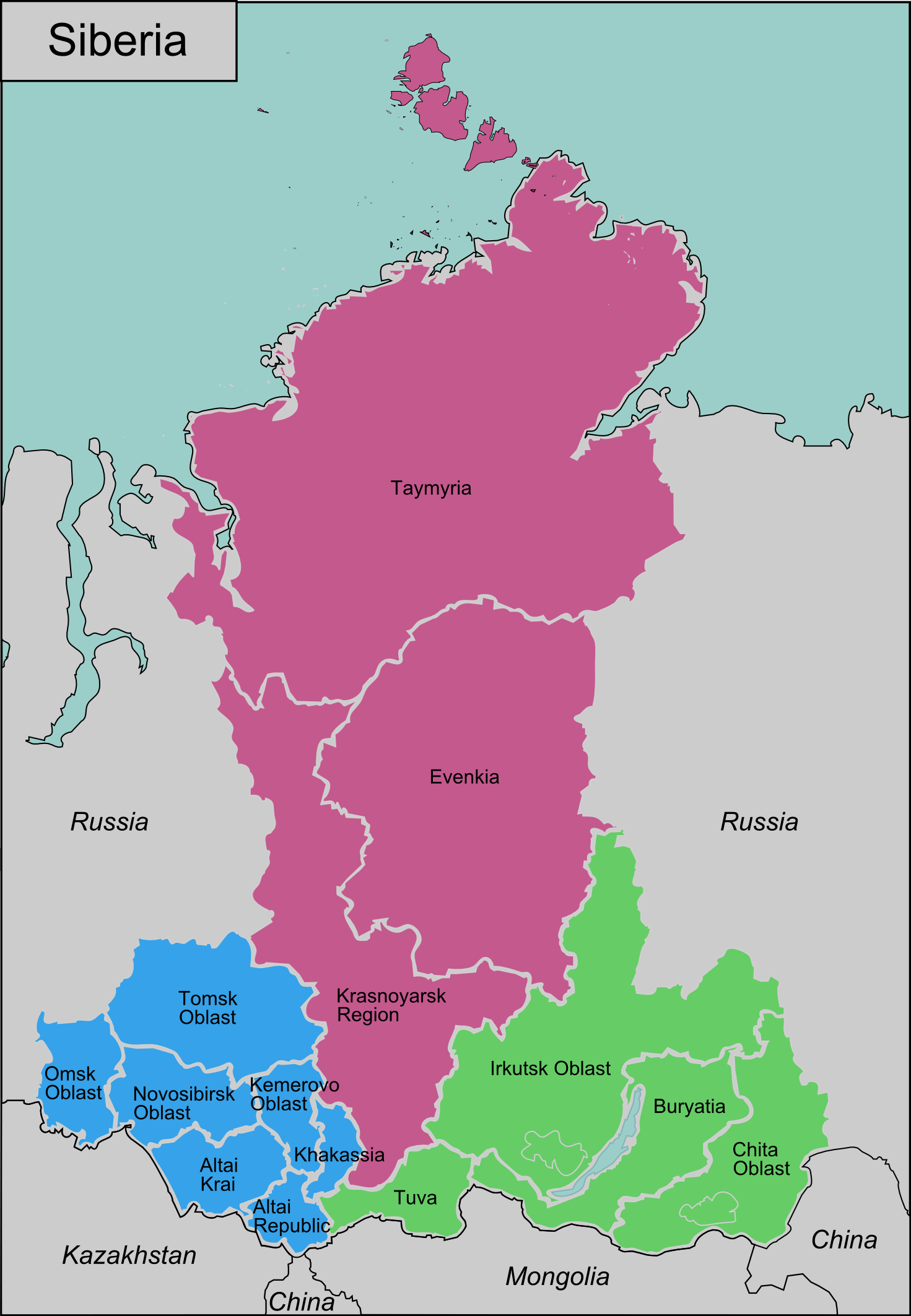Siberia Situated In Which Country: Unveiling The Vast Expanse Of Russia's Heartland
Alright, folks, let's dive right into the heart of the matter. **Siberia situated in which country?** If you're scratching your head over this one, don't worry—you're not alone. Many people hear the word "Siberia" and automatically picture a frozen wasteland, but there's so much more to it than that. It's not just a place—it's an entire region that plays a pivotal role in global geopolitics, economics, and even climate science. So, buckle up as we take you on an adventure to uncover the secrets of Siberia and why it matters.
Now, before we get into the nitty-gritty, let's set the stage. Siberia is massive, sprawling, and mind-blowingly cold at times. But did you know it's also home to some of the richest natural resources on the planet? From oil to gas, timber, and precious metals, this region is a treasure trove waiting to be explored. And guess what? It's all situated within one country, which we'll reveal in just a bit. But first, let's talk about why Siberia is more than just a frozen tundra.
Here's the deal: Siberia isn't just a place on the map. It's a symbol of resilience, survival, and human endurance. For centuries, it's been a land of extremes—both in terms of geography and history. It's where the past meets the present, and where the future of energy and climate change might just be decided. So, if you're ready to uncover the mysteries of Siberia, let's get started!
Daftar Isi
- Introduction: Siberia Situated in Which Country?
- Geography of Siberia: A Vast Expanse
- The Siberian Climate: Extreme Yet Fascinating
- A Brief History of Siberia
- Natural Resources: Siberia's Hidden Wealth
- Economic Impact of Siberia on Russia
- Who Lives in Siberia?
- Tourism in Siberia: Is It Worth It?
- Environmental Challenges in Siberia
- The Future of Siberia: What Lies Ahead?
Introduction: Siberia Situated in Which Country?
Alright, let's cut to the chase. Siberia is situated in Russia. Yes, you heard that right. This enormous region is part of the Russian Federation, and it covers about 77% of Russia's total land area. That's right—Siberia is so big that it could fit multiple countries inside it. Imagine a landmass that stretches from the Ural Mountains in the west to the Pacific Ocean in the east. That's Siberia for you.
But why is Siberia such a big deal? Well, for starters, it's not just a random chunk of land. It's a region that's been shaped by history, politics, and geography. From the early days of Russian exploration to the modern era of globalization, Siberia has always been at the center of attention. And let's not forget its role in shaping Russia's identity as a global superpower.
Now, if you're wondering why Siberia is so important, here's the quick answer: it's all about resources. This region is home to some of the largest reserves of oil, gas, and precious metals in the world. In fact, Siberia is often referred to as the "energy heartland" of Russia. But there's more to it than just resources. Siberia is also a cultural and historical hub, with a rich tapestry of traditions and stories that date back centuries.
Geography of Siberia: A Vast Expanse
Size and Location
Let's talk geography for a moment. Siberia is massive—seriously, MASSIVE. It covers an area of about 13.1 million square kilometers, making it one of the largest regions in the world. To put that into perspective, Siberia is larger than the entire continent of Canada. And guess what? It's all situated within Russia. So, if you're wondering how big Russia is, just think about Siberia and you'll get the picture.
Now, when it comes to location, Siberia is sandwiched between the Ural Mountains in the west and the Pacific Ocean in the east. It stretches from the Arctic Ocean in the north to the borders of Kazakhstan, Mongolia, and China in the south. That's a lot of ground to cover, folks. And let's not forget the countless rivers, lakes, and mountains that dot the landscape. It's a geography buff's dream come true.
Landscapes and Features
Alright, let's break it down. Siberia isn't just a frozen wasteland—it's a diverse region with a variety of landscapes. You've got the tundra in the north, where the ground is permanently frozen. Then there's the taiga, which is the world's largest forest biome. And let's not forget the steppes, which are vast grasslands that stretch as far as the eye can see. Oh, and did I mention the mountains? The Sayan and Altai ranges are some of the most stunning natural wonders in the region.
And let's talk about water. Siberia is home to some of the largest freshwater lakes in the world, including Lake Baikal, which holds about 20% of the world's unfrozen freshwater. It's also dotted with countless rivers, including the mighty Ob, Yenisei, and Lena. So, if you're a nature lover, Siberia has something for everyone.
The Siberian Climate: Extreme Yet Fascinating
Now, let's talk about the elephant in the room: the climate. Siberia is notorious for its extreme weather conditions. In the winter, temperatures can plummet to -50°C or even lower in some areas. And in the summer? Well, it can get surprisingly warm, with temperatures reaching up to 30°C in some parts. But here's the thing: Siberia's climate is more than just cold. It's a fascinating mix of extremes that has shaped the region and its people.
For example, did you know that Siberia is home to some of the coldest inhabited places on Earth? Oymyakon, a small village in the Sakha Republic, holds the record for the lowest temperature ever recorded outside Antarctica. But despite the harsh conditions, people have been living in Siberia for centuries, adapting to the environment and thriving in ways that might seem impossible to outsiders.
A Brief History of Siberia
Early Exploration
Siberia's history is as rich and diverse as its geography. The region has been inhabited by various indigenous groups for thousands of years, each with their own unique cultures and traditions. But it wasn't until the 16th century that Siberia began to come under Russian control. The conquest of Siberia was a long and arduous process, with Russian explorers and adventurers pushing eastward in search of new lands and resources.
Modern Era
Fast forward to the 20th century, and Siberia became a key player in the Soviet Union's industrialization efforts. The region was home to many labor camps, or gulags, where political prisoners were sent to work under harsh conditions. But despite its dark past, Siberia has continued to play a vital role in Russia's development. Today, it's a hub of innovation and progress, with cities like Novosibirsk leading the way in science and technology.
Natural Resources: Siberia's Hidden Wealth
Alright, let's talk about the elephant in the room: Siberia's natural resources. This region is a treasure trove of oil, gas, timber, and precious metals. In fact, Siberia is responsible for producing about 80% of Russia's oil and gas exports. And let's not forget the diamonds—Siberia is home to some of the largest diamond mines in the world.
But here's the thing: extracting these resources isn't easy. The harsh climate and remote locations make it a challenging endeavor. However, with advances in technology and infrastructure, Siberia's natural resources continue to be a major driver of Russia's economy.
Economic Impact of Siberia on Russia
Siberia's economic impact on Russia cannot be overstated. The region is a powerhouse when it comes to energy production, contributing significantly to Russia's GDP. In fact, many of Russia's largest companies, such as Gazprom and Rosneft, have operations in Siberia. And let's not forget the role of Siberian cities like Novosibirsk and Irkutsk, which are major economic hubs in their own right.
Who Lives in Siberia?
Now, let's talk about the people. Despite its harsh climate, Siberia is home to millions of people. The population is a mix of ethnic Russians, indigenous groups, and other minorities. Each group brings its own unique culture and traditions to the region, creating a rich tapestry of diversity.
Tourism in Siberia: Is It Worth It?
Believe it or not, Siberia is becoming a popular destination for adventurous travelers. From the stunning landscapes of Lake Baikal to the historic cities of Novosibirsk and Irkutsk, there's plenty to explore. And let's not forget the cultural experiences that await those who dare to venture into this remote region.
Environmental Challenges in Siberia
Of course, Siberia isn't without its challenges. Climate change is having a significant impact on the region, with rising temperatures causing permafrost to melt and releasing greenhouse gases into the atmosphere. This, in turn, is affecting the region's ecosystems and the people who depend on them.
The Future of Siberia: What Lies Ahead?
So, what does the future hold for Siberia? With its vast resources and strategic importance, the region is sure to play a key role in Russia's development. But challenges such as climate change and environmental degradation will need to be addressed if Siberia is to continue thriving. One thing's for sure: Siberia's story is far from over.
And there you have it, folks. Siberia situated in which country? Russia, of course. But it's so much more than just a geographical location. It's a region that's shaped by history, culture, and the forces of nature. So, if you're ready to explore the mysteries of Siberia, there's no better time than now.
Kesimpulan
To wrap things up, Siberia is a region of immense importance, not just for Russia but for the world. Its vast resources, diverse landscapes, and rich history make it a fascinating place to explore. And while it faces challenges such as climate change and environmental degradation, its future remains bright. So, if you're looking for a place that's full of adventure and wonder, Siberia might just be the place for you.
And hey, don't forget to leave a comment or share this article with your friends. The more people know about Siberia, the better. Who knows? Maybe one day you'll find yourself exploring the frozen tundra and marveling at its beauty. Until next time, stay curious and keep exploring!

Siberia

Siberia Regions

Is Siberia a Country?